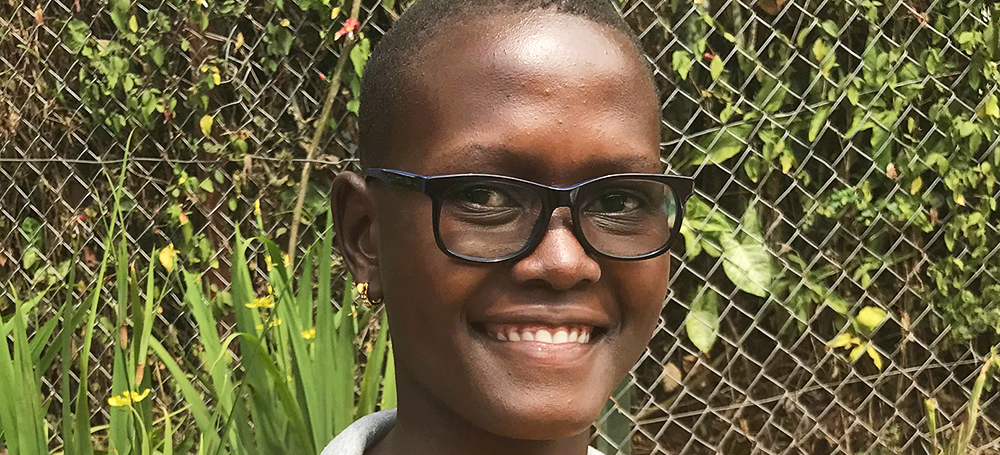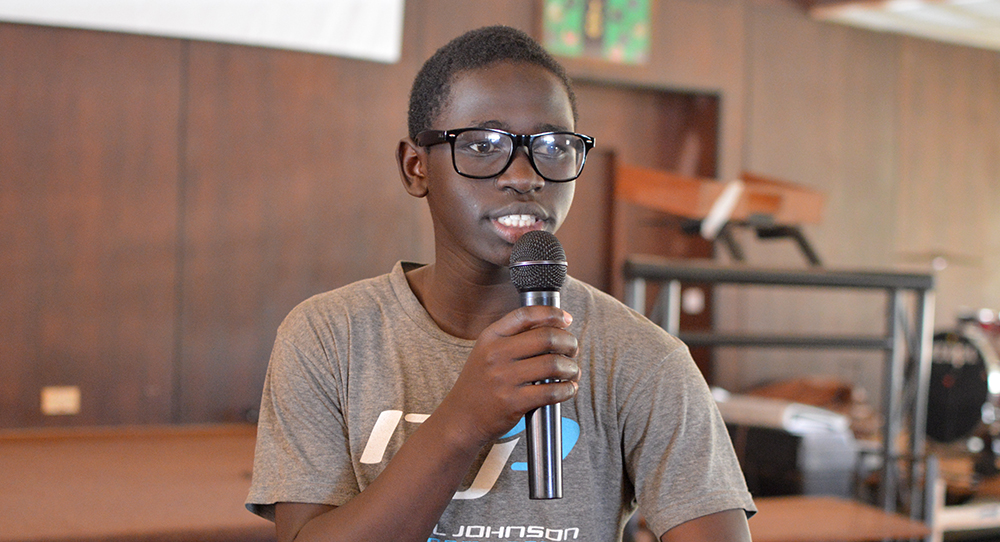
16-year-old Jackie in Kampala, Uganda told us what Viva’s Child Ambassadors programme means to her.
What is your name and where did you grow up?
My name is Jackie. I grew up in a small village in Wakiso District in central Uganda.
How did you first hear about CRANE?
Far back when I was still in primary school. At first I thought it was a bank but I found CRANE had a full meaning – Children at Risk Action Network.
What did you learn as a Child Ambassador?
Many things! First, I learnt life skills like being confident, having self-esteem and public speaking. I learnt other skills too; for example, fruit and vegetable gardening and improving sanitation. I learnt how to decide wisely and appropriately. I learnt to reflect on my life with God, to love God and the Bible – in the Safe Club we put God first in everything we did.
How did it feel to be a Child Ambassador?
So good! I met many new people and went to places I never thought of going to. The skills I learnt have now become part of me. I always stood up for myself and others, for change in all situations. It felt extra good on days where all the Child Ambassadors came together for activities such as camp, sports and music among others.
What was your best achievement as a Child Ambassador?
I have come to know that I am a person who loves God very much. I still remember the first memory verse we were given as Child Ambassadors – ‘I can do all this through him who gives me strength’ (Philippians 4: 13). This verse gives me hope in life.
Do you think that being a child ambassador has had an impact on your life today? If so, how?
It has built the inner me. The Jackie who is confident, has high self-esteem and is good at decision-making. The Jackie who can fight for her rights and the rights of others. I would strongly recommend other children join because I believe it is a life-changing programme. Long live CRANE, long live Child Ambassadors!

More about the Child Ambassadors’ programme…
What is it?
Child Ambassadors was created by Viva and is currently being implemented by CRANE to train, equip and mentor children to become peer leaders and child advocates. The theme of Child Ambassadors was birthed out of advocacy and child protection training, which puts emphasis on the need to integrate child participation in all our programmes. The programme makes children in the communities the first line of response in keeping children safe. The children who participate in this programme are known as Child Ambassadors. However, because these children are growing, we have deigned a graduate programme that we call Youth Ambassadors looking at child protection in a broader perspective.
How many children in Uganda are on the programme?
More than 7,000 children and youth were directly reached during Safe Club activities in the different communities through activities such as awareness meetings, sports and music competitions, debates, quizzes, youth camps, community development projects and life skills development.
Why is the programme important?
It empowers children in communities to be the first line of response in attending to child protection and this reduces risks of abuse in many ways. Children are equipped not only with knowledge about their rights but they are also given life skills to protect themselves from abuse, to be able to identify abuse and respond appropriately.
What makes it successful?
Having active and meaningful participation of children is what I would count as a successful programme. However, a number of factors have to be considered for this to happen. For example, there has to be a mentor who is committed to walking a journey with the young leaders/advocates; to encourage, guide and build their capacity, and sometimes to create or identify platforms within the communities for children to excel in their role.
How does a network approach to this programme makes it even better?
Working as a single organisation implies impact will in just one community. However, bringing together leaders from different member organisations in different communities contributes to a wide scale on which an advocacy messages is shared. Shared learning is one of the benefits of implementing a programme like this within the network and this has been one of the motivating factors among children’s Safe Clubs.
How would you like the programme to grow in the future?
The levels of engagement should be increased to help young people address practical issues in more practical ways, with support both financially and morally. At the moment the programme has been project focused; in future I hope to see all network members taking part in the Child Ambassador programme.
Interview by Immaculate Nanfuka, CRANE’s Network Quality Assurance Manager
This article first appeared in Life magazine, issue 12
